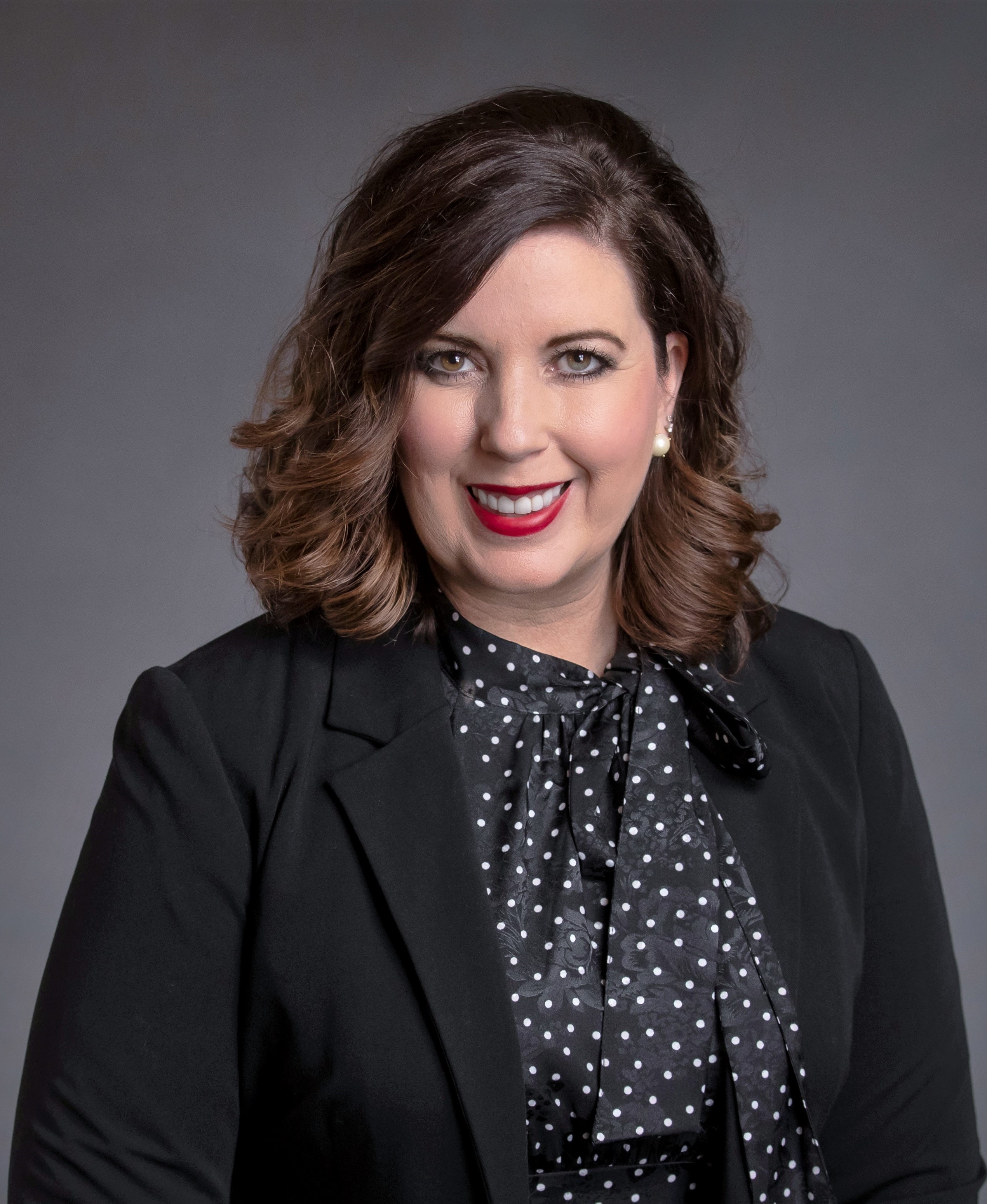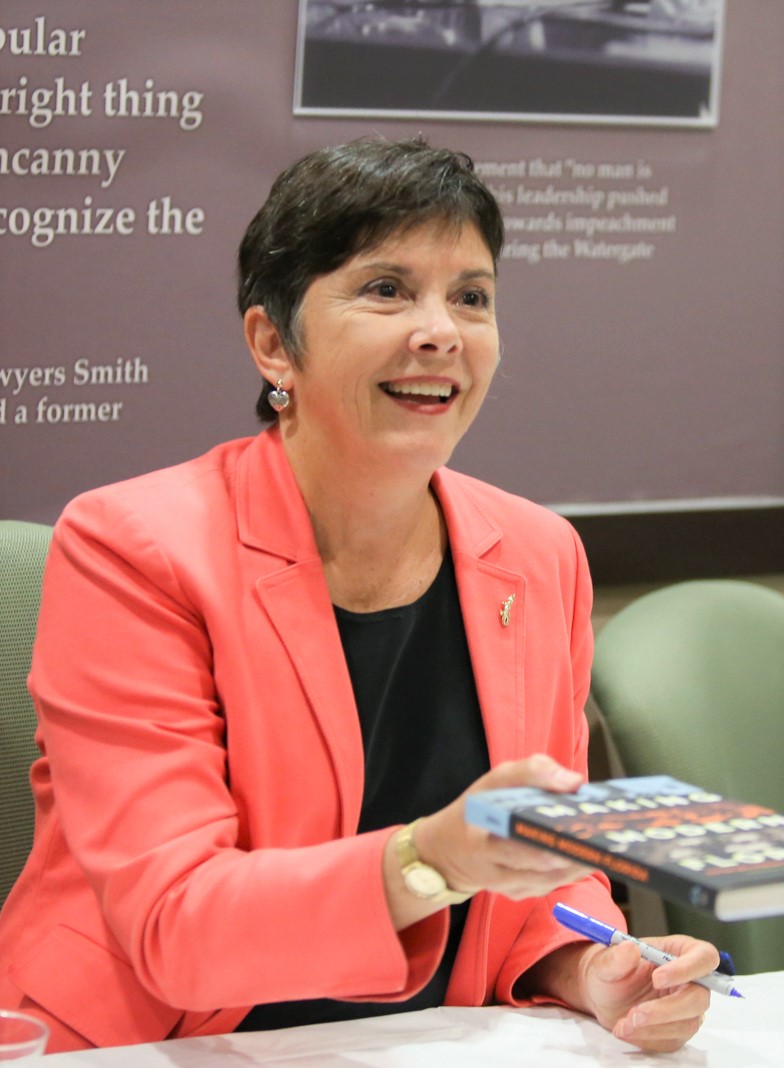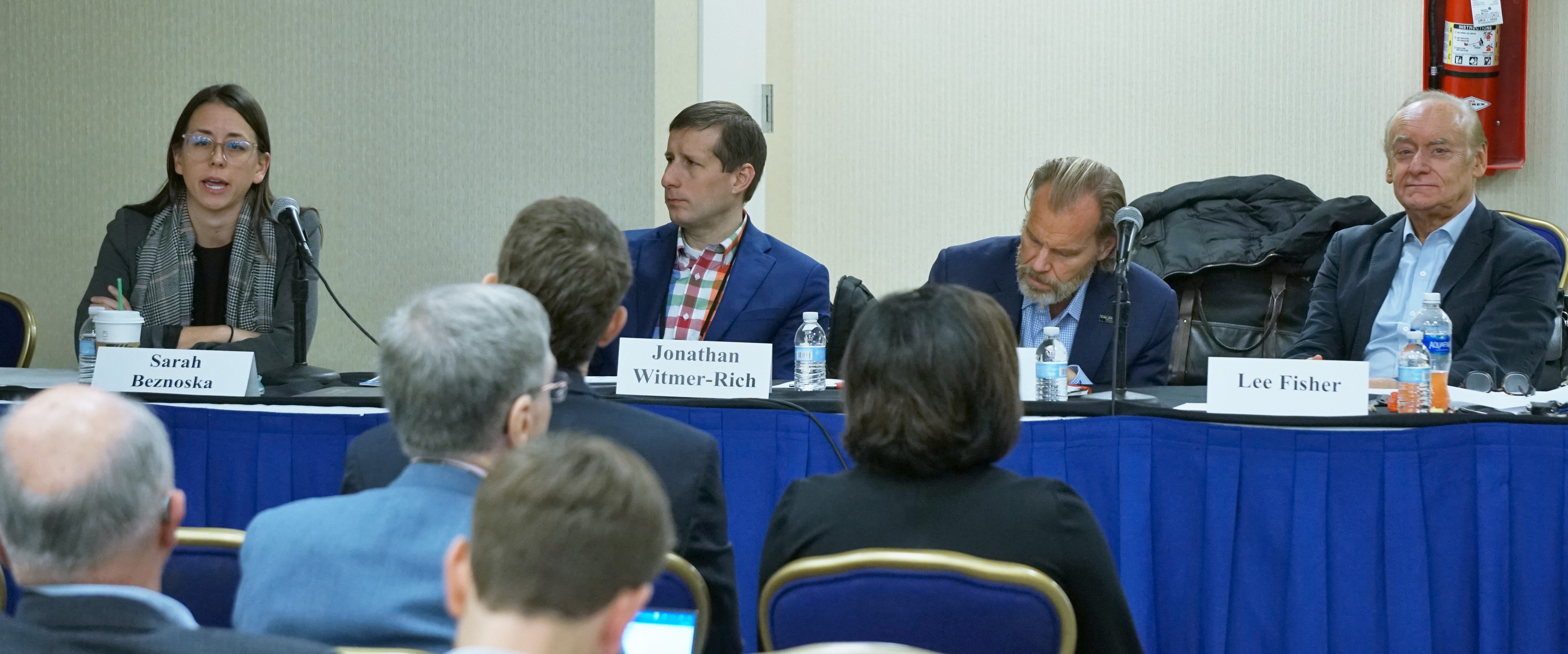By Barbra Elenbaas
The Section on Legal Writing, Reasoning, and Research was named Section of the Year by the AALS Committee on Sections in November. As part of the ongoing “Spotlight on Sections” series, AALS sat down with the leadership of the section at the AALS Annual Meeting to discuss the state of the field and activities for the coming year.
Chair: Wendy-Adele Humphrey, Texas Tech University School of Law

Wendy-Adele Humphrey, Texas Tech University School of Law. Photo courtesy of Texas Tech University.
Chair-Elect: Mary Adkins, University of Florida, Levin College of Law

Mary Adkins, University of Florida, Levin College of Law. Photo courtesy of University of Florida, Levin College of Law.
Wendy-Adele Humphrey: According to our section bylaws, our section “promotes the discipline of legal writing, reasoning, and research through the education and communication of ideas, interests, and activities, among the members of the section, and supports the professionals in legal writing programs in their academic endeavors.” To accomplish this broad purpose, we have several committees that effectively and efficiently plan and execute a wide variety of activities and initiatives.
Our section has evolved over the years due to structural changes in legal writing programs, many of which used to rely heavily on adjuncts. Most programs have evolved to include full-time professors, but not with equal status. The positive trend now is to convert legal writing positions into tenure-track positions.
Legal writing is a required course, so our section has a large membership that continues to grow—in part because we genuinely love teaching legal writing. And professors in the legal writing field tend to stick around. We teach our students the practical skills and knowledge that they need to apply to what they’re learning in their other classes. We’re on the front line, teaching them fundamental skills and preparing them for the legal profession. A recent legal writing award recipient said “We don’t teach our students how to think like a lawyer. We teach our students how to be a lawyer.” I love this! We are also very fortunate because, given the nature of what we teach, we tend to form very close, mentoring relationships with our students. It’s very rewarding. That’s probably one reason why we all stick around.
Mary E. Adkins: Only in their writing and research class do students have the chance to figure out how cases relate to an actual legal problem. We’re the ones giving them a hypothetical scenario: “Somebody was injured by avoiding a dog. The dog didn’t bite them, they just avoided the dog, and they swerved into a wall. Is the dog owner liable?” They discover pretty quickly that there is no single case that answers the question. Their “a-ha” moment happens in our classes. That’s why clients pay lawyers the big bucks: because they will find all the cases that partially apply and figure out the answer. Welcome to legal analysis.
MA: While some legal writing programs have evolved by converting their legal writing positions to full parity, tenure-track positions, most programs still have full-time faculty who lack equal status. We’re looking to change that, but we realize that our section can’t single-handedly trigger the change. That’s up to individual law schools. But equipping each other with resources and support is a starting place to help us all perform well professionally.
“The legal writing field in general is very innovative and creative, not only with the subjects we cover but also because of the evolution of program structures changing over the years.” – Wendy-Adele Humphrey
WAH: Law schools continue to examine conversion and what is best for their particular legal writing program. Not every program wants to have tenure-track positions; some professors do not desire to produce scholarship. In general, having the dean’s support is a vital part of navigating the waters. If the dean is not supportive, then converting to tenure-track positions will likely never happen. In addition, there would need to be a full faculty vote. It’s a collective decision that requires buy-in from all the various stakeholders.
MA: Then the rest of the university, and possibly a governing board, would have to agree.
WAH: Plus, there are different reasons why our colleagues may not be fully supportive of the shift to tenure-track positions. For some, it is purely a financial issue. For others, it’s more fundamental. I really think most deans and professors in legal education today understand the importance of legal writing programs and equity. Conversion is just a long, slow process at some law schools.
WAH: The fundamental research and writing skills our future lawyers need are essentially the same across the board. In other words, legal writing courses might be labeled differently, but they typically cover the same practical skills. It varies from school to school how much the legal writing professors teach research. In some programs, the legal writing professors are very collaborative with the law library faculty. There are different approaches, but we’re all striving to reach the same basic student learning outcomes.
WAH: There’s a trend in legal education to be more focused on well-being and self-care. Because of the nature of our course and the close relationships that we form with our students, we’re in a very good position to address some of those topics.
MA: Our students have several assignments over the course of the semester—between that and meeting with them, we have more opportunities to know if something’s going on with them. I think we probably get tearful students more often than other professors because they feel like they know us a little better. It seems to happen about once a semester in my life. Sometimes we’re the ones who see the pressures on students before other professors do.
WAH: Another hot topic is incorporating social justice issues into what we’re teaching so that we’re not only getting at the underlying skills necessary to be a lawyer, but also helping our students learn to be aware and empathetic.
MA: Even something as simple as giving a historically under-respected person a respected role in your hypothetical situation is more common today. I had a hypothetical situation once years ago in which a social worker brought a family into court on an emergency basis for neglect. I gave the social worker a name that you might associate with a minority because the social worker was the hero, and I gave the bad parents very bland names that you wouldn’t associate with anything. Even little things like that help promote social justice.
WAH: This gets to cultural competency, even beyond social justice issues. Professors in the legal writing field are very innovative and creative!
MA: Status for professors is always a hot topic.
WAH: Formative assessment is an inherent part of a legal writing course. We see the growth in students because we engage in formative assessment on a regular basis, giving them meaningful feedback so that they can improve. We meet with them multiple times one on one to go over assignments, which is how we get to know them on another level. In some program structures, professors may have the same students in class for the entire academic year.
MA: We get to see a student’s progress during the course of a semester or year. Of course, giving meaningful feedback as part of formative assessment is a lot of work. Not only do we have to come up with good legal writing assignments, but we must grade multiple drafts. It’s worth all the hard work!
MA: Legal writing professors are lucky to have a few field-specific organizations. Between AALS and those other organizations, we get to see each other a few times a year. This allows us to foster good relationships and strong mentoring across the field year-round. Because legal writing became a requirement relatively late in the history of legal education in the United States, teachers have not been treated like the teachers of other courses. Historically, there has been low pay, no chance at tenure, and no chance at doing scholarship—when, of course, doing scholarship and publishing is what you need to become tenured or considered for tenure. We help and encourage our members start researching, writing, and publishing.
WAH: During the section’s new scholars showcase at the Annual Meeting, for example, none of the professors presented scholarship on the topic of legal writing. While scholarship addressing legal writing topics is valuable, we often write about other substantive areas that interest us. I primarily focus on issues related to reproductive justice and gender equity. Mary focuses on the state constitutional law and history.

Section on Legal Writing, Reasoning, and Research session at the 2020 AALS Annual Meeting.
MA: It’s a challenge. I think Wendy-Adele and I probably look like the average legal writing professor: white women. We have worked hard to be inclusive. In our section, we’re getting there! It takes not only saying “join our group,” but, beyond that, “wouldn’t you like to chair this committee?” People need to know that they’re valued. It hasn’t always been easy, and there have been some rough spots with people feeling left out on the fringes, but I think we’ve made a lot of progress.
WAH: We also think about what we can do within the larger legal community to promote diversity and inclusion. One way is with makeup of panels: is there diversity not only with gender, race, and ethnicity, but also diversity in thought? The concept is broad. We are looking at ways to get the message across to others, not just within the section, but outside as well.
MA: I would like to start a new, permanent committee on mentoring that goes beyond outreach to our new members. We could help people as they face challenges throughout their career, whether it’s going up for tenure or becoming a director of their program. Maybe it’s that their program went director-free. We’ve all found it helpful, as we navigate our careers, to have someone who is not at your institution to give you some perspective. A lot of our people are shy. At this conference alone, I’ve had many conversations in which people have said, “Really, I’m an introvert.” Maybe those people could just sign up to get a mentor.
WAH: That goal also nicely aligns with one of the core values of AALS.